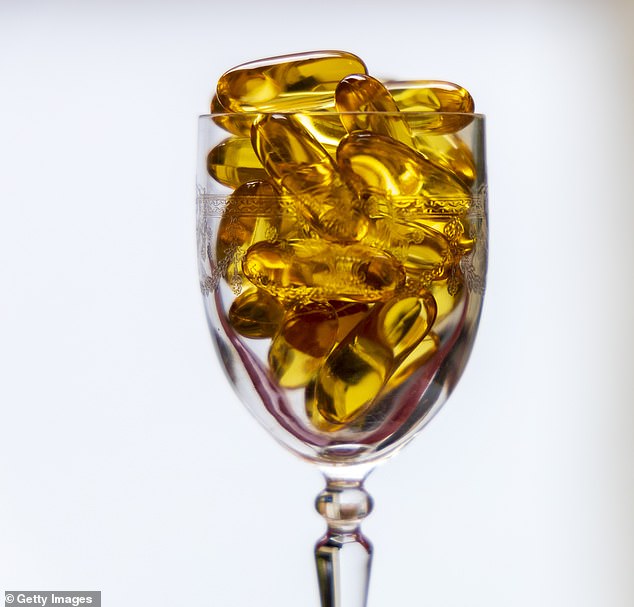You might think it sounds too good to be true: a pill that allows you to enjoy alcohol without harmful side effects.
But scientists are one step closer to developing precisely this, with a gel that, ingested 30 minutes before the first drink, prevents one from getting drunk or suffering from damage to the liver and other alcohol-related organs.
The gel, which has so far only been tested on animals, works by breaking down alcohol into a harmless liquid as it passes through the gastrointestinal tract.
When we drink alcohol, it is absorbed by the mucous membrane that lines the stomach and intestine. It then passes into the bloodstream, which carries it throughout the body, including the brain, liver, and kidneys.
Acetaldehyde contributes to many hangover symptoms, such as headaches, dehydration, and fatigue.
After five to ten minutes, it begins to affect the brain, stimulating the release of the feel-good hormones dopamine and serotonin.
But as we drink more, alcohol begins to suppress the central nervous system, affecting speech, vision and coordination.
As the body (mainly the liver) metabolizes alcohol, it converts the ethanol it contains into another form of alcohol called acetaldehyde.
It is acetaldehyde that contributes to many of the hangover symptoms, such as headache, dehydration and fatigue, before it is eventually converted into another liquid, called acetic acid.
Acetic acid is colorless and harmless and is eliminated through the kidneys in the form of urine.

A new gel (not pictured) is placed in the stomach and absorbs the alcohol before it can enter the bloodstream.
The new gel, developed by researchers at ETH University in Zurich, Switzerland, settles in the stomach and absorbs alcohol before it can enter the bloodstream, cleverly converting it into benign acetic acid. The acetic acid then passes through the stomach or intestine and into our circulation.
Stripped of its toxic ingredients, alcohol produces neither the “high” that comes with a few drinks nor the dreaded hangover.
Scientists mixed three ingredients (iron, glucose and gold) that they found can trigger a reaction in the intestine that quickly breaks down alcohol and converts it to acetic acid.
This mixture was added to a gel made from whey, a type of protein found in cow’s milk that breaks down very slowly in the intestine (meaning you can consume it up to 30 minutes before alcohol). The team then tested the gel on eight mice that were fed small pieces of the gel and then given alcohol 20 minutes later.
The results, published in the journal Nature Nanotechnology, showed that the blood alcohol level of the gel-fed mice was almost half that of the other group.
Six hours later, all the mice were tested to find the exit from a maze. Those who had taken the gel found their way out much faster.
Crucially, the tests also showed that high amounts of alcohol did not appear to have any effects on the liver in the gel group, while in the other group their livers showed signs of inflammation.
The team has applied for a patent for the gel and hopes to test it in humans soon.
But if the gel stops not only the “pain” caused by alcohol but also all pleasure, what is the real benefit?
“The obvious alternative is to simply drink less or not at all,” says David Nutt, professor of neuropsychopharmacology at Imperial College London.
“The gel could be of some help to those who cannot reduce their alcohol consumption, as it could reduce intoxication and alcohol-related harm,” he says.
‘But for everyone else it doesn’t make economic sense, as it would involve the cost of the gel plus payment for the “wasted” alcohol.
“Similar products have been tried in the past to cancel out alcohol, without great success,” he says. One of the most recent, launched in 2022, was a probiotic (made from beneficial bacteria for the intestine such as Bacillus subtilis and Bacillus coagulans) called Myrkl, marketed as a ‘pre-drinking pill’ by the Swedish firm of the same name. . The pill should be taken at least one hour before drinking it.
The manufacturer claims that just two tablets, costing £1 each, can reduce the amount of alcohol actually reaching the bloodstream by around 70 per cent, rather than breaking it down into harmless water and carbon dioxide which is removed from the body. through the kidneys.
But the evidence supporting Myrkl’s effectiveness is limited, with only one human study, published in 2022 in the journal Nutrition and Metabolic Insights.
Researchers at the Pfutzner Institute of Science and Health in Mainz, Germany, administered the probiotic tablet to 24 healthy young people before giving them alcohol.
The results showed that blood alcohol levels in the probiotic group were 70 percent lower than in those who received a placebo.
But could the weight loss drug Wegovy reduce people’s appetite for drinking?
Several animal studies have shown that Wegovy curbs the tendency to excessive alcohol consumption, although it is not currently approved for this use. The drug is thought to work in a similar way to obesity: by dampening the “reward” the brain receives when alcohol is consumed, thus reducing the urge to continue drinking.
Earlier this year, Novo Nordisk – the Danish company that makes Wegovy – announced that it is planning a study to see if the drug could prevent alcohol-induced liver damage by reducing the amount people drink.


